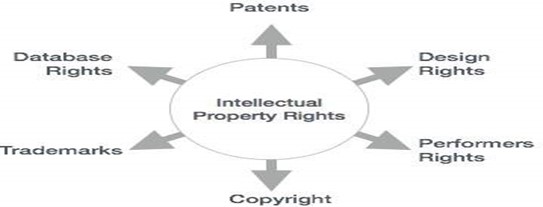Why Special Report 301 in news?
The United States Trade Representative recently released the Special Report 301. According to the report, India has been put on the “Priority Watch List” along with eight other countries.
Another twenty-three countries were also put on “Watch List”.
What is 301 Report ?
-The report is released annually by the United States Trade Representative.
-It is published under Section 301 of Trade Act of 1974 and hence the name.
-It is being published since 1989.
-The report basically lists the countries that do not provide sufficient IP rights to American companies.
What are "Priority Watch List" and "Watch List"?
-"Priority Watch List" and "Watch List" countries are identified by the annual Special 301 Report.
-"Priority Watch list countries" are judged by the USTR as having "serious intellectual property rights deficiencies" that require increased USTR attention.
What is the Special Report 301 about India?
-India has been inconsistent in the progress of IP protection.
-Though the enforcement of IP has gradually improved, India lacks in providing benefits for innovators.
-The patent issues are of great concern in India.
- The Indian Patent Law lacks patent validity and holds narrow patentability criteria.
-Patent applicants are facing issues with time consuming pre and post grant procedures.
-They face difficulties of long waiting periods to receive patent approval.
-Stakeholders of India continue to express concerns over vagueness in the interpretation of Indian Patents Act.
Consequences
The U.S. government may initiate dispute settlement proceedings at the World Trade Organization (WTO) or other relevant trade agreement, including the North American Free Trade Agreement (NAFTA).
-The U.S. government can also eliminate tariff preferences unilaterally granted, such as the Generalized System of Preferences (GSP)
What is Generalized System of Preferences (GSP)?
-Generalised System of Preferences (GSP) is a U.S. trade program designed to promote economic growth in the developing world by providing preferential duty-free entry for up to 4,800 products from 129 designated beneficiary countries and territories.
-Is India under Generalized System of Preferences (GSP)?
-India was enjoying status of GSP till 2019.
-Than President Donald Trump in 2019 had terminated India's designation as a beneficiary developing nation under the key GSP trade programme after determining that it has not assured the US that it will provide "equitable and reasonable access" to its markets.
Which agency governs the patent law in India?
-The Office of the Controller General of Patents, Designs and Trade Marks (CGPDTM) generally known as the Indian Patent Office, is an agency under the Department for Promotion of Industry and Internal Trade which administers the Indian law of Patents, Designs and Trade Mark .
-Term of every patent in India is 20 years from the date of filing of patent application,
-The rights granted by an Indian Patent Office extends only throughout the territory of the India -
-An inventor who wishes patent protection in another country must apply for a patent in a specific country.






.jpg)
.jpg)
.jpg)
.jpg)



.jpg)
